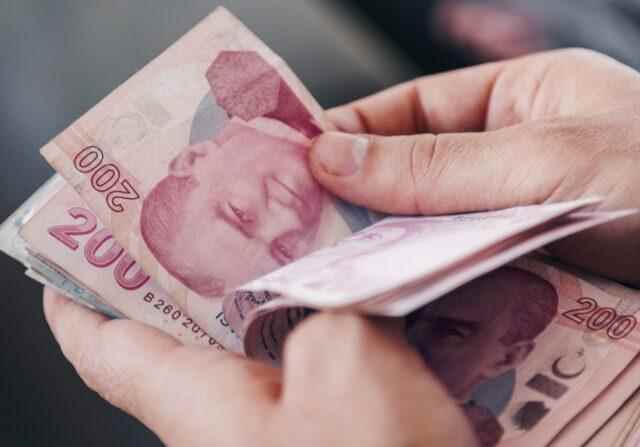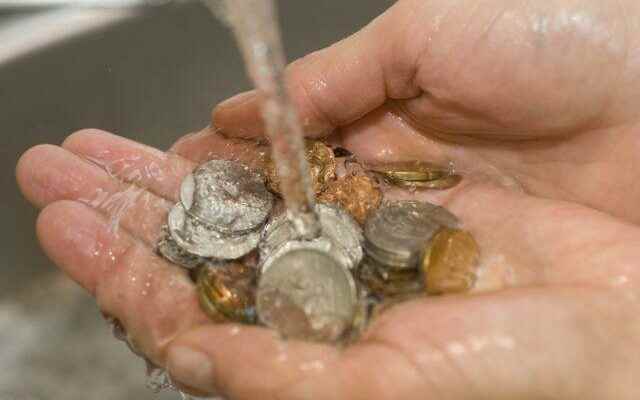In the survey conducted within the scope of the scientific study at Izmir Katip Çelebi University, 26 percent of the participants stated that they clean the coins and banknotes with soap, alcohol, disinfectant or bleach to protect them from the virus. İKCU Health Vocational School Deputy Director Dr. Faculty Member İbrahim Çınar said, “Before Covid-19 broke out, we used to hear words like ‘wash your hands when you touch money’, but when Kovid-19 came out, this turned into more money washing behavior.”
Çınar, the post-epidemic behaviors of 360 students were investigated by questionnaire method. 95.3 percent of the participants in the study stated that they think that bacteria and virus will be transmitted through money. 26.4 percent of the participants said that they cleaned or washed the money after shopping due to the fear of Kovid-19.
75.8 PERCENT USED DISINFECTANTS
75.8 percent of those who prefer to clean the money only use disinfectant, 9.4 percent wash it by hand with soap and water, 7.4 percent pour disinfectant after washing, 7.4 percent prefer ironing steam or cologne. he said he did. 77.9 percent of those who showed cleaning or washing behavior also reported that they observed tearing, discoloration, and erasure on the money.
In the survey, it was also determined that there was a statistically significant relationship between the behavior of cleaning money after shopping and the field of education of the students, their gender, the education level of their mothers and the income status of their families. Research results have been published in national and international scientific journals.
”I WASHED AND DRIED IT TOO”
İKCU Health Vocational School Deputy Director Dr. Faculty Member İbrahim Çınar told Anadolu Agency (AA) that he is working in the field of health economics and that he wants to investigate the impact of the coronavirus epidemic on social life by combining health and economy.
Noting that she also started washing money to protect her child, who wanted to touch the coins and banknotes, from viruses, Çınar said, “I washed the money with soap and water and dried it.” said. Noting that this behavior became widespread after the epidemic, Çınar stated that she decided to conduct scientific studies and noted that the incidence of money washing in the society was higher than she expected.
“THE MONEY THOUGHT A VIRUS CAN BE TRANSMITTED”
“With the Kovid-19 outbreak, people started to wash their hands more. They started to pull back about handshaking and hugging, and they started to wash their clothes more often. One of the points that especially attracted our attention is that people have now started to wash the materials and money they bought from others. Kovid-19 Before we went out, we used to hear words like ‘wash your hands when you touch money’, but when Kovid-19 came out, this turned into more money washing behavior.”
Çınar stated that they reached 360 people in the research through a questionnaire, “Almost all of the participants think that money can be infected with the virus, we saw the behavior of washing money in about 1 in 4. They wash both coins and banknotes.” said.

Expressing that one of the important factors in money cleaning behavior is “family” and “education level”, Çınar concluded by saying: “In our research, we found that money washing behavior increases as the education level decreases. I wonder if people become more uneasy because their education level is low, “We think that ignorance makes them more uneasy. As people say, ‘I can only wash my hands and get rid of the virus,’ as knowledge increases, they may turn to the behavior of ‘I wash my hands and money’ as information decreases.”
(AA)
